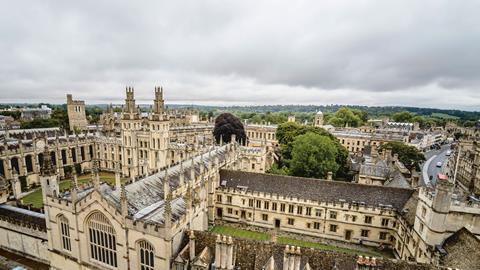Five years after throwing their mortarboards in the air to celebrate graduation, Oxford law graduates are earning £43,600 more than graduates of the University of Bedfordshire in Luton, official statistics show today.
A table published by the Department for Education shows that the median salary for the 2012/13 cohort of law graduates from the University of Cambridge a year on is £28,700. Those graduating from the University of Oxford earned £26,700.
A law graduate from the University of Bolton in the same cohort had median earnings of £13,000 a year after graduation; for a University of Sunderland law graduate the figure was £13,700.
Today's numbers are part of a series of higher education data releases from the Department for Education's new Longitudinal Education Outcomes dataset. It focuses on the employment and earnings outcomes in the 2014/15 tax year for those who graduated with an undergraduate degree in 2008/09, 2010/11 and 2012/13 from a higher education institution in Great Britain.
Graduate figures refer to 2008/09, 2010/11 and 2012/13 cohorts and reflect activity in the 2014/15 tax year. Earnings figures are based on PAYE.
Median salaries three years after the 2010/11 cohort graduated show Cambridge law graduates on £42,100 and Oxford graduates on £41,100. Those on the lowest median salaries include graduates from the University of Bradford (£15,900), the University of Wolverhampton (£16,000) and the University of Huddersfield (£17,000).
The starkest earnings gap can be found among the 2008/09 cohort five years after they graduated.
The median salary for Oxford graduates is £61,400. Cambridge graduates earn £54,700. By contrast, a graduate from the University of Bedfordshire is on £17,800. A graduate from the University of South Wales can expect £18,500. A University of Derby graduate gets £18,600.
The figures appear to reinforce long-standing concerns about the lack of social mobility in the legal profession.
In 2015 research published by the Sutton Trust and Prime, a diversity access scheme set up by law firms, showed that one in two partners at magic circle firms were privately educated, compared with just 7% of the general public.
A separate study by the London School of Economics found that male Oxford-education barristers from London-based chambers were still more likely to take silk despite reforms to the appointment system in 2004.




























21 Readers' comments